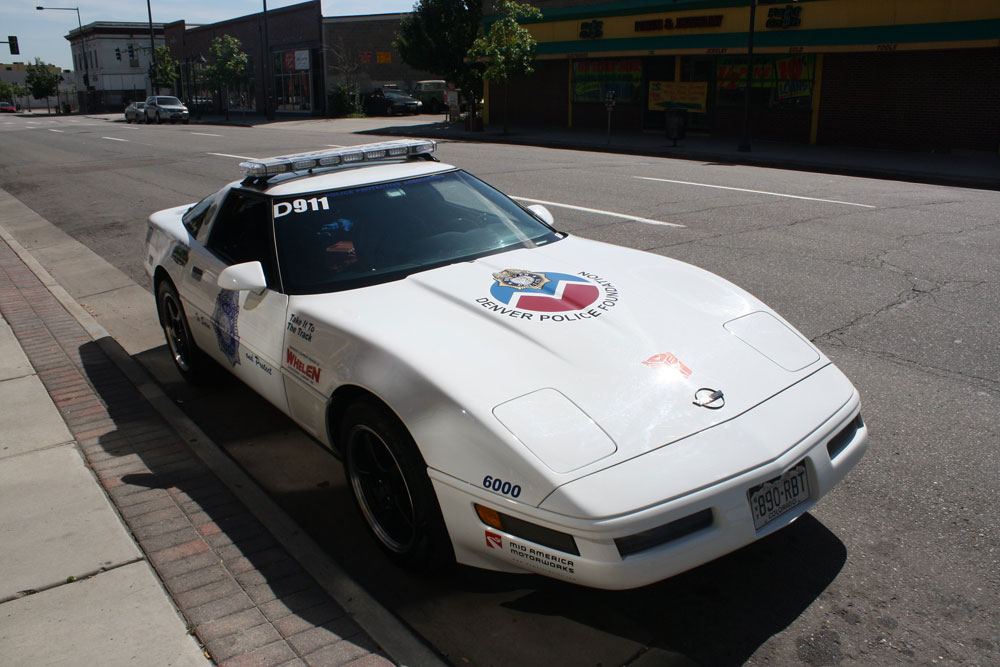
July/August 2020; Dollars&Sense
Police foundations are exactly what they sound like: philanthropic endeavors sponsored by corporate funds that arm and train local police around the country. These foundations partner with companies like Starbucks, Amazon, Target, AT&T, Chevron, Goldman Sachs, and Comcast, among others, and manage million-dollar budgets to work directly with police departments. They do so without accountability and minimal public oversight.
As we previously reported for NPQ, these private foundations are involved in enabling some of the most troubling implicit bias practices by police departments, such as LAPD’s surveillance “predictive risk models” used to identify “probable offenders” in select neighborhoods. They do so by using data-analysis software from Palantir, owned by litigious billionaire Peter Thiel. Police officers in Los Angeles are required to report on surveilled targets and track arrests for their “Chronic Offender” program for further analysis and guarantee future funding from the Los Angeles Police Foundation.
Per an investigation by the Appeal, an advocate explained, “Oftentimes, you can be stopped just for being around certain people, whether it be car stops or stops of groups on a street, so this predictive policing idea that you have to earn your right not to be on the list [emphasis ours] is cruel because to avoid law enforcement for years—that’s not possible.”
The origin story of police foundations can be traced back to the 1960s and ’70s—a time of social unrest and protests sparked by the War in Vietnam, increased police brutality and surveillance, the rise of COINTELPRO, and the assassinations of Martin Luther King and Malcom X. According to its website, the National Police Foundation was established on July 22, 1970, thanks to a generous $30-million grant from the Ford Foundation for a five-year period to be “the largest private agency in the nation concerned exclusively with police work.” Ford would later publish a report titled “A More Effective Arm” to show how the long-term project’s yielding investments would “assist experiments and pilot programs” by local police departments and reconcile the “seriously high incidence of crime” with a more “adequate” criminal justice system.
Created at the height of neoliberal politics, the National Police Foundation was essentially arguing for “releasing” police services from the burden of “custom-laden bureaucracy” to allow for “organized philanthropy” lead the way in more effective, modern crime deterrents. Throughout the years, the National Police Foundation’s would inform both Republican and Democrat administrations, led by people from the high echelons of policy and policing institutions, including former mayor of Atlanta Ivan Allen, Jr., former Massachusetts governor Francis W. Sargent, James Q. Wilson (author of “Thinking About Crime”), and FBI and CIA Director William H. Webster.
Sign up for our free newsletters
Subscribe to NPQ's newsletters to have our top stories delivered directly to your inbox.
By signing up, you agree to our privacy policy and terms of use, and to receive messages from NPQ and our partners.
Local police foundations began appearing in the US and Canada shortly thereafter, first in New York City (1971) and Vancouver (1976), with a short hiatus in the ’80s and then again in Boston (1994), Ontario (1994), New Orleans (1996), and Los Angeles (1998). According to research led by Canadian academics Kevin Walby, Randy K. Lippert, and Alex Luscombe, today there are at least 251 police foundations in 43 states and Washington DC, 89 of those established between 2014 and 2016. In California alone they identified 45 police foundations.
The authors of the research contend that the latest growth of police foundations correlates with the 2008 financial crisis and ensuing cuts in public police funding. However, it was the International Association of Chiefs of Police (IACP), based in Alexandria, Virginia, and the US Department of Justice’s Office of Community Oriented Policing Services (COPS) that began publishing manuals, hosting conferences, and launched the National Police Foundations Project in 2010.
The issue of accountability in this public-private partnership has increasingly become a serious problem. Per the authors,
Police foundations also benefit from having a board of directors, who often connect the foundation to transnational corporations [emphasis mine] and other private foundations…channel funds into the foundation and later to the police department. Tax exempt status of the organization and limited liability of founders, directors, members and staff are other benefits of a nonprofit police foundation…Another benefit of foundations, contrary to police foundation rhetoric, is the increased secrecy these legal arrangements provide to police officials, effectively permitting transactions to happen in the dark…In our research examining financial aspects of police donations and sponsorship, we encountered numerous barriers to transparency and information access.
Regardless, there have been recent attempts to follow conflicts of interest between these foundations’ corporate sponsors and the technology, equipment, and training they are purposely providing for local police departments. Researchers from ProPublica and LittleSis.org, for example, were able to trace some of the direct connections between local police foundations and corporate America governance, many of them enjoying board and trustee seats at these tax-exempt organizations. NPQ reported how Laura and John Arnold invested $3.7 million on Baltimore’s police fund at the Boston Community Foundation to support a sophisticated, military-grade surveillance shrouded in secrecy. And an in-depth investigation by The Intercept in 2015 showed how the United Arab Emirates donated $1 million over four years to New York City Police Foundation for counterterrorism overseas operations conducted by the NYPD. The UAE considers human rights organizations Council on American-Islamic Relations (CAIR) and the Muslim American Society (MAS) “terror organizations.”
Indeed, the 1970s neoliberal “experiment” of lifting the “burden of bureaucracy” from local police has left us with an increasingly militarized police force that works under the mandate of unaccountable corporate donors. One can understand how “defund the police” takes a wider turn for dismantling an undemocratic philanthropic structure that is a far cry from healthy police-community relations.—Sofia Jarrin-Thomas













